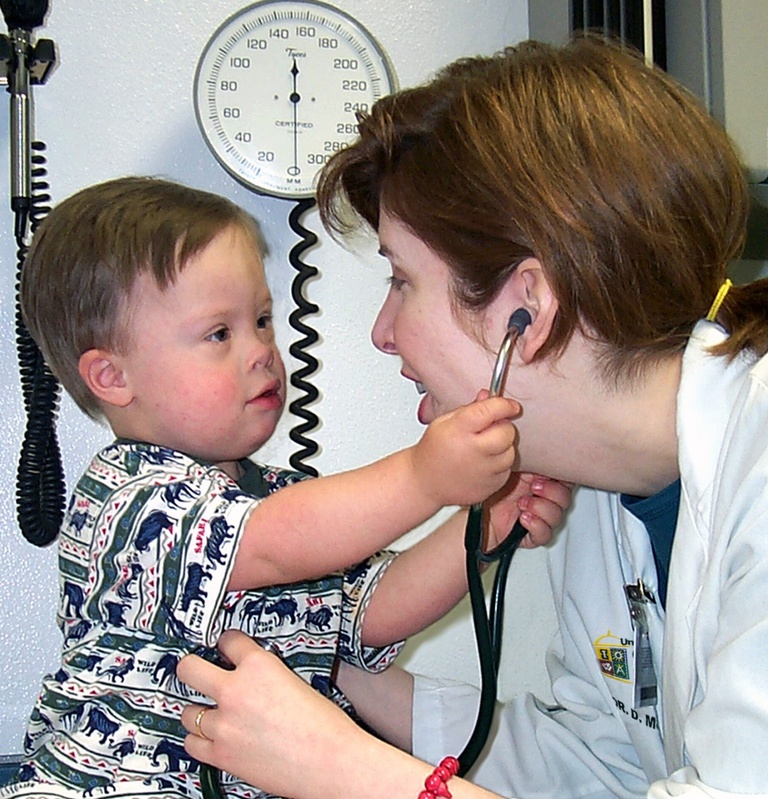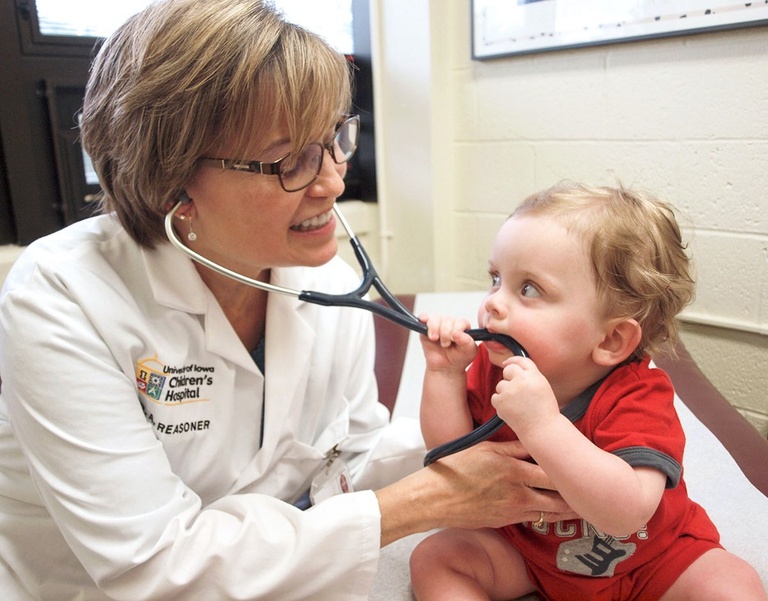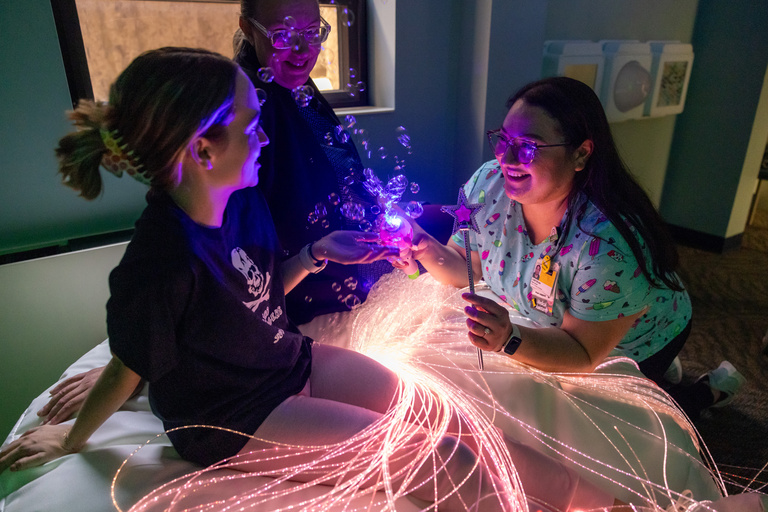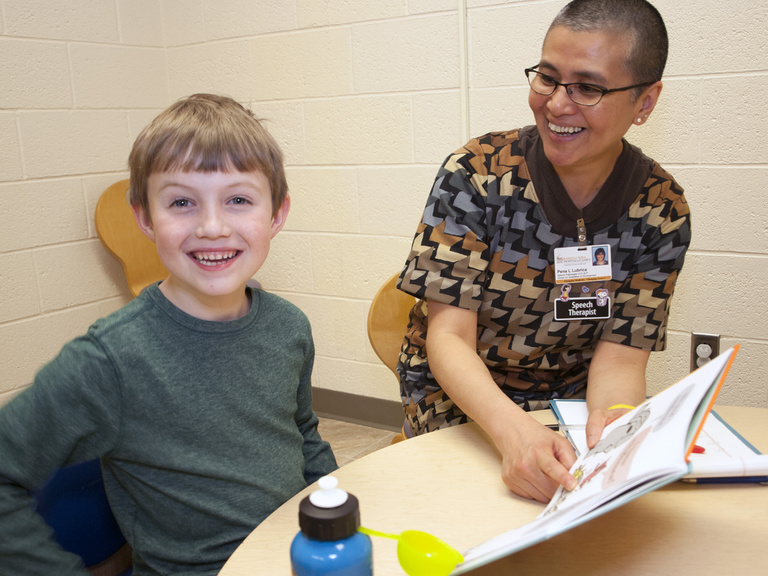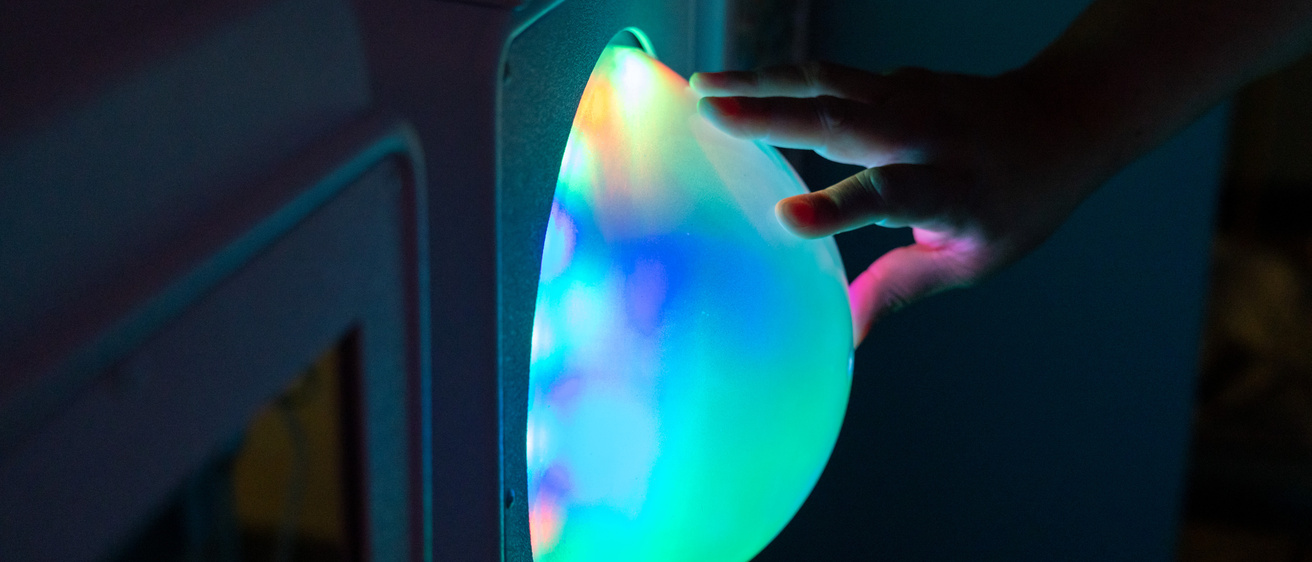Main navigation
We are dedicated to improving the health of people with disabilities and to better understand how genetics and the social environment intersect to predict developmental outcomes in childhood.
The Division has been a national leader in research using applied behavior analysis to treat severe and challenging behavior. Recent studies have demonstrated practical strategies for using telehealth to expand access to behavioral treatment for children in rural and underserved areas.
Our program in Iowa first began in 1948 as a small, 20-bed residential service on the University of Iowa health sciences campus for "educable" children with disabilities. From there, the Division of Developmental-Behavioral Pediatrics has grown to Iowa's premier health resource for people with disabilities of all ages and their families.
Training Program
The division offers a three-year fellowship program that consists of clinical, research, and community-based experiences. Fellows are involved in supervised research and clinical activities which include a dedicated DBP continuity clinic throughout the three-year program. Fellows typically spend 24 months in clinical training and 12 months in research.
Clinical Training
Fellows take part in rotations within pediatric psychology, child neurology, child and adolescent psychiatry, medical genetics, orthopedics, physical and occupational therapy, speech language therapy, behavior therapy, as well as other programs.
Research
Fellows will have the opportunity to be mentored by NIH-funded DBP and psychology faculty who are passionate about clinical research and training. Research in the division includes a focus on prevention of developmental and behavioral problems in early childhood by examining early parent-child attachment patterns and how a parent's brain responds to seeing and hearing their infant during functional brain scanning.
